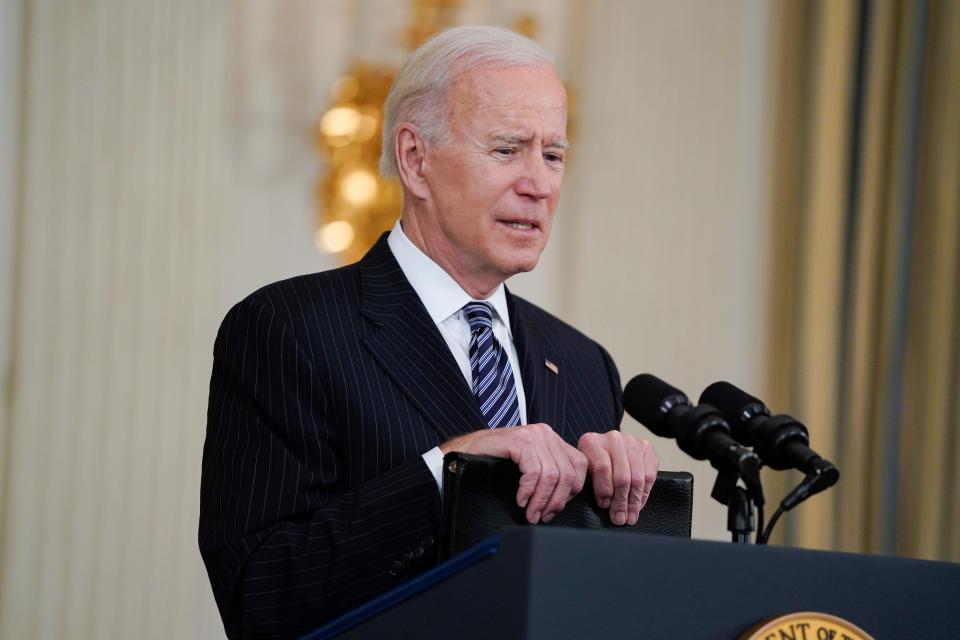Paul deLespinasse: The presidency: Treading water while swatting bees
Holding public office in the United States is never a relaxing occupation, and we should regard proposals that we do so with caution.
A quarter century ago a friend (I think), local chairman of his party, phoned to see if I would be his party's candidate for the county commission. The expected candidate had backed out. I was temporarily registered in the other party in order to vote in its more interesting primary, so this got me off!
Even if I had currently been registered in his party, I would have turned down the invitation, having no desire to ruin my own life for the welfare of the people.

Admittedly, this was not a very public-spirited attitude. We are lucky that some people, some of them very outstanding, feel differently. One of my political heroes was Mark Hatfield, who became Oregon's governor and then a long-time U.S. senator.
But the demands of some high political offices are so terrible that it is amazing that anyone is willing to hold them. This is especially true for U.S. presidents, whose job was once colorfully described by TV commentator Eric Sevareid as "treading water while swatting bees."

Of course all presidents come into office with a lot of things they would like to do, policies they would like to change, goals they would like to pursue.
But most of these presidential ambitions require cooperation from Congress, the Supreme Court, and the federal administrative branch, each of which is filled with individuals who have their own agendas.
And on top of this, there are the "bees" — totally unexpected developments which descend on the president demanding immediate attention. There are only so many hours in the president's day, only so many expert advisers who can be consulted, only so much time to think about what needs to be done. Something has to give, and this is often the president's plans.
Notable examples of bees that urgently needed swatting can be found in the administration of any president. President Eisenhower had to cope with the national consternation when the U.S.S.R. beat the U.S. in launching the first artificial satellite in 1957. Kennedy had to contend with uproars about civil rights, domestically, and the injection of Soviet missiles into Cuba, which nearly set off World War III.

nullMore recent examples of unexpected crises include 9/11 for George W. Bush, the COVID-19 pandemic for Donald Trump, and the Russian attack on Ukraine and soaring inflation for Joe Biden.
An extreme case confronted Harry Truman, who became president when Franklin D. Roosevelt died in 1945. Truman had not previously been informed about the ultra hush hush wartime Manhattan Project to develop atomic bombs.
He had to decide whether or not to use this terrible weapon. Either using or not using this weapon would produce terrible consequences: hundreds of thousands additional American casualties if he didn't bomb, hundreds of thousands of civilian Japanese deaths if he bombed.
One of my best students at Adrian College was born because of Truman's decision to bomb. The man who later became his father had just been captured in China by the Japanese and would have been shot as an American spy if the war hadn't ended abruptly.
Another beneficiary was the state of Oregon. Mark Hatfield's interest in public service was whetted and strongly influenced by his visit to the ruins of Hiroshima soon after the end of World War II.
A political career is not for everybody, as Max Weber (1864-1920) pointed out in his famous essay, "Politics as a Vocation." This is especially true of top offices like the American presidency — a terribly difficult and frustrating job.
As an old saying goes, when you are up to your ass in alligators, you don't have time to think about draining the swamp.
— Paul F. deLespinasse is professor emeritus of political science and computer science at Adrian College. He can be reached at pdeles@proaxis.com.
This article originally appeared on The Sault News: Paul deLespinasse: The presidency: Treading water while swatting bees

